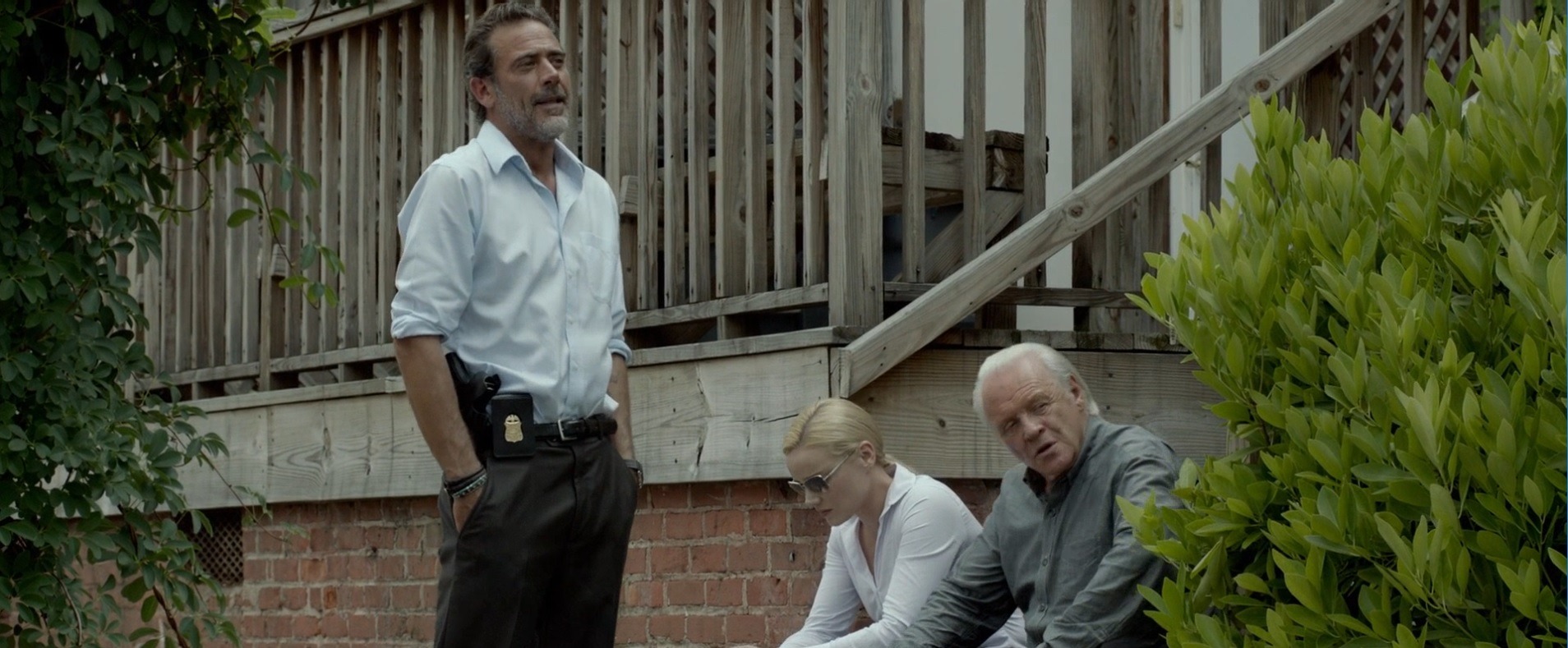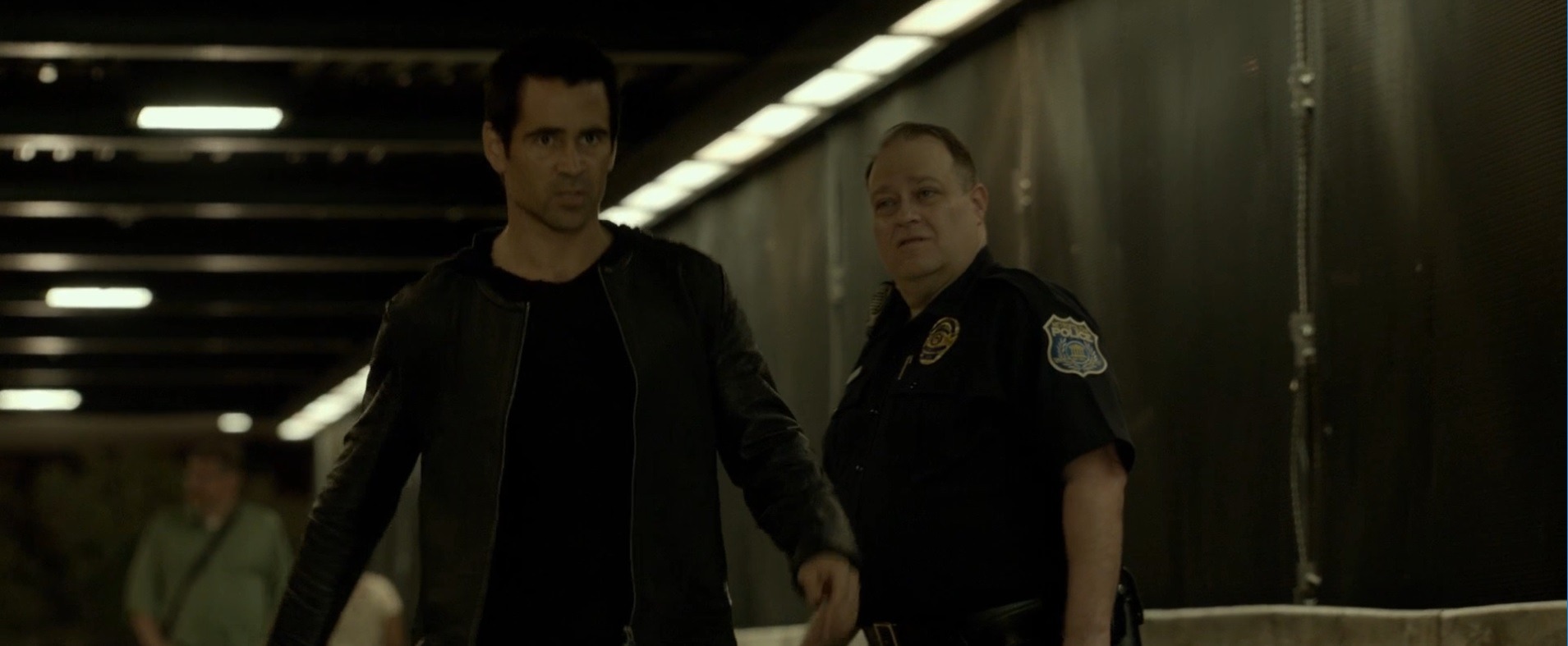
Dr. John Clancy had been living in solitude for two years, haunted by the memory of his daughter’s death. His once-sharp mind, gifted with extraordinary psychic abilities, had dulled under the weight of grief. He wanted nothing to do with the world outside his sparsely furnished cabin, let alone the people who still reached out to him. But when FBI Special Agent Joe Merriwether appeared at his door, Clancy’s resolve to remain isolated was put to the test.
Joe brought a case with him, one so grim it clung to him like a shadow. A serial killer had been targeting victims in ways that baffled even the most seasoned investigators. The murders were methodical, deliberate, and carried out with chilling precision. Joe needed Clancy’s help. Clancy refused at first, unmoved by Joe’s pleas. But then Joe’s partner, Dr. Katherine Cowles, entered the room. When she handed Clancy the case files and gently touched his shoulder, his world tilted.
In an instant, he saw her future: blood dripping down her forehead, a vivid flash of violence. Other fragments of her life flickered in his mind, disjointed but profound. The vision left Clancy shaken. He reluctantly agreed to join the investigation, though he knew this decision would force him to confront not only the killer but also the memories he had tried to bury.

From the outset, Cowles was skeptical of Clancy’s so-called gift. A meticulous psychologist, she believed in evidence and logic, not psychic visions. But as the investigation progressed, Clancy’s insights proved eerily accurate. He led the team to the crime scenes with uncanny precision, describing details no outsider could have known. Slowly, Cowles began to see that Clancy’s abilities were real, even if she struggled to understand them.
The victims shared one horrifying connection: all of them had been suffering from terminal illnesses. Cancer, ALS, advanced heart disease—their diagnoses were as much a part of the killer’s pattern as the methods he used to end their lives. Clancy began to see a pattern, one that disturbed him deeply. This wasn’t the work of a sadist or a man driven by rage. The killer believed he was doing something merciful.
But there was something else, something that set this killer apart. Clancy realized the man they were chasing had a gift of his own—a psychic ability even more powerful than his. It was a chilling revelation. The killer was always one step ahead because he could see the outcomes of their every move. The case took a darker turn when Joe was shot by the suspect during an ambush. As he lay in the hospital, gravely injured, Joe revealed to Clancy that he had recently been diagnosed with terminal cancer. Clancy’s grief deepened when Joe succumbed to his injuries. The loss of his friend reignited the fire inside him, turning his focus back to the killer with a newfound intensity.
After the funeral, Clancy found himself face-to-face with the killer. Charles Ambrose was calm, composed, and disturbingly arrogant. He explained his philosophy in chilling detail: he wasn’t murdering these people; he was sparing them from prolonged suffering. Each death was an act of mercy, orchestrated with care. Ambrose even confessed to orchestrating Joe’s death, claiming it was inevitable. “I’ve seen every possible ending,” he told Clancy. “You can’t surprise me.”

But Clancy did surprise him. Using his own abilities, Clancy foresaw Ambrose’s tactics and managed to turn the confrontation against him. Ambrose escaped, but Clancy knew it was only a matter of time before their paths crossed again.
Cowles’ research confirmed Ambrose’s identity, piecing together the fragments of his life. The investigation reached a critical point when Clancy tracked Ambrose to his latest victim, a man dying of pancreatic cancer. Clancy intervened just in time, confronting Ambrose in a tense standoff. “You don’t have the right to take their time away,” Clancy said, his voice trembling with both anger and grief. “Not Joe’s, not theirs, not anyone’s.”
Ambrose remained unfazed. “They’re suffering, John. You know what that’s like. You’ve seen it.” His words cut deep, but Clancy refused to waver.
The final confrontation unfolded in the dim, confined space of a subway car. Ambrose, cornered but unrepentant, faced Clancy and Cowles with a grim proposition. “I’m dying,” he confessed. “You’re the only one who can continue my work, John. If you don’t, more people will suffer. And if you don’t kill me now, Katherine will die.”
Cowles, desperate to stop him, rushed forward. In a blur of motion, Ambrose fired his weapon. Clancy reacted instinctively, pulling his own gun and firing back. Ambrose collapsed, mortally wounded. Cowles survived, but Clancy was hit in the exchange. As the chaos subsided, Cowles knelt beside Clancy, her hand trembling as she pressed it against his wound.
In his hospital bed, Clancy revisited the ghosts of his past. He confided in Cowles about the day he lost his daughter, the day he made the impossible decision to end her suffering from leukemia. The memory had haunted him ever since, a wound that never healed. Yet, in Cowles, he saw a glimmer of redemption. She wasn’t just a colleague; she was a reminder of the daughter he had lost, a second chance to protect someone he cared about.

Before Cowles left his bedside, Clancy handed her a letter addressed to his estranged wife. It was an olive branch, an attempt to reconcile after years of silence. Clancy knew his journey was far from over, but for the first time in years, he felt the weight of his grief begin to lift. He had faced the darkness within himself and emerged, scarred but whole.
As Cowles walked away, she carried with her not just the letter but the lessons she had learned from Clancy. The case had tested them both, pushing them to their limits. But in the end, it was their humanity—not their abilities—that defined them. And though the scars of the past would never fully fade, they had found a way to move forward, together.
















Leave a Reply